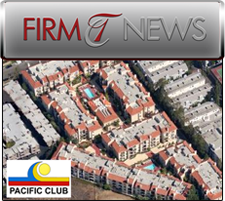*Asked & Answered
Asked – May a homeowner challenge the qualifications of a member to serve on the HOA’s Board of Directors after they have been elected?
Answered – Maybe, depending on the date of the challenge. Corp. Code §7527 provides that “an action challenging the validity of any election, appointment or removal of a director or directors must be commenced within nine months after the election, appointment or removal. If no such action is commenced, in the absence of fraud, any election, appointment or removal of a director is conclusively presumed valid nine months thereafter.” The election will thus be deemed valid unless the challenge is brought within nine (9) months after the election.
However, there is a slight conflict in the law with respect to election challenges. Civil Code §1363.09(a) provides a one (1) year period to bring civil actions for declaratory or equitable relief relating to violations of the election and voting procedures set forth in that article. Accordingly, the law is slightly inconsistent with respect to the exact period in which such challenges may be brought.
 |
HOAs can be significantly impacted by actions taken under the direction of an unqualified Board Member. Surprisingly, most original governing documents do not contain any specific qualifications for a member to serve on their HOA’s Board. Many HOAs therefore opt to amend their Bylaws to establish reasonable qualifications for Board Members (e.g., membership in the association, good standing with regard to assessment payments, etc.). Adoption and enforcement of Board Member qualifications assist in ensuring that the best possible members are entrusted with managing the HOA’s affairs.
|
To submit HOA law questions to Tinnelly Law Group, click here.
Content provided by Kai MacDonald, Esq. – HOA attorney with Tinnelly Law Group.
 *New Resource
*New Resource HOA Lawyer Blog
HOA Lawyer Blog



 *New Resource
*New Resource We are proud to announce that the Pacific Club Condominium Association has selected Tinnelly Law Group as its corporate counsel.
We are proud to announce that the Pacific Club Condominium Association has selected Tinnelly Law Group as its corporate counsel.
 We are proud to announce that the Faire Harbour Homeowners Association has selected Tinnelly Law Group as its new corporate counsel.
We are proud to announce that the Faire Harbour Homeowners Association has selected Tinnelly Law Group as its new corporate counsel.  *New Resource
*New Resource We are proud to announce that the Hacienda De Rio Homeowners Association has selected Tinnelly Law Group as its HOA law firm.
We are proud to announce that the Hacienda De Rio Homeowners Association has selected Tinnelly Law Group as its HOA law firm. Voting to amend homeowner or condominium association (Association) governing documents can be a difficult process. Additionally, when an Association’s governing documents require a “supermajority” vote to enact the amendment, the process can go from difficult to nearly impossible. A “supermajority” refers to a vote requiring approval by more than a simple majority (any amount over 50%) of the membership. Voter apathy, busy schedules and other issues can make achieving a supermajority highly impractical, particularly for larger Associations.
Voting to amend homeowner or condominium association (Association) governing documents can be a difficult process. Additionally, when an Association’s governing documents require a “supermajority” vote to enact the amendment, the process can go from difficult to nearly impossible. A “supermajority” refers to a vote requiring approval by more than a simple majority (any amount over 50%) of the membership. Voter apathy, busy schedules and other issues can make achieving a supermajority highly impractical, particularly for larger Associations.  TLG Attorney and
TLG Attorney and